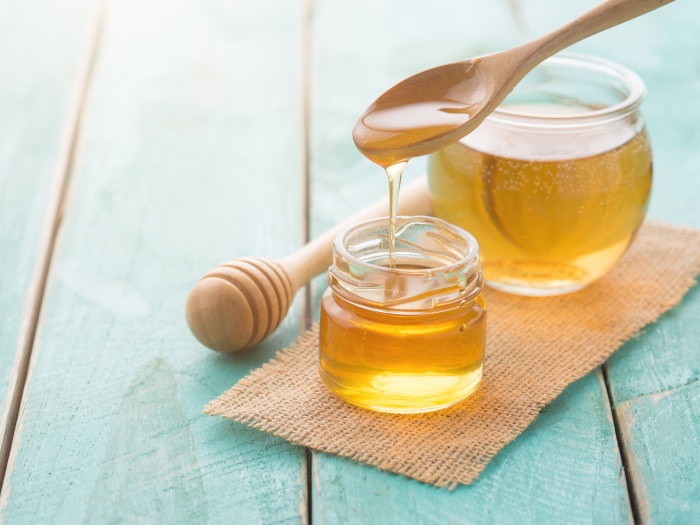One of the most hotly debated questions in the vegan world is – is honey vegan? Meat, cheese, and eggs can be easily called out as non-vegan but certain food products like figs and honey fall in the grey area. While many vegans stay away from honey for ethical reasons, some say sourcing and eating honey from local and ethical beekeepers could be considered vegan-friendly.
Is Honey Vegan?
Honey has been one of the most used natural products since ancient times for food as well as for therapeutic use. It is an insect-derived product made by honey bees from the nectar of flowers. To state the process simply, a colony of bees visit millions of flowers every day and collect nectar. These worker bees then pass the nectar to younger bees who collect it in the iconic hexagon-shaped beeswax honey cells in honeycombs. The bees dry out the nectar into honey by fanning it with their wings. Once the honey is dry, they seal it with a natural product, which we call beeswax. The bees then use this honey during winter when the temperatures drop and there are no flowers available to forage. [1] [2]
This is one of the reasons why the Vegan Society says honey is not vegan and states that honey is made by bees for bees and that the health of honey bees is compromised when the stored nectar is used by humans. [3] [4]

Honey is a controversial topic for vegans. Photo Credit: Shutterstock
Another argument made by vegans for terming honey non-vegan is that they believe it is made by exploiting honeybees. According to the Vegan Society, “veganism is a way of living which seeks to exclude, as far as is possible and practicable, all forms of exploitation of, and cruelty to, animals for food, clothing or any other purpose.” Certain beekeepers use disturbing exploitative practices that include artificially inseminating the queen honey bee and clipping her wings to prevent her from leaving the beehive. [5]
Vegans also call the replacing of honey with sugar syrup in beehives or the usage of pollen substitutes as unethical and exploitative practices. Replacing the stored honey with low-quality sugar syrups in honeycombs can harm the health of the honeybees. Certain commercial beekeepers also destroy entire colonies to prevent the spread of diseases instead of trying to save them through medications. Due to these reasons, many vegans avoid honey and other honeybee-derived products such as beeswax, propolis, honeycombs, and royal jelly. [6] [7] [8] [9]
Vegan Alternatives For Honey
There are many plant-based options that vegans can opt for instead of honey. Let’s take a look at the most popular ones.
- Maple syrup: This amber syrup is made from the sap of the sugar maple, red maple, or black maple trees and is one of the most easily available vegan options for a natural sweetener.
- Date syrup: This is a delicious thin-textured liquid made from dates that can be used for baking as well as drizzled over pancakes or desserts.
- Golden syrup: This is essentially a syrup made from sugar, water, and lemon or citric acid. To make it at home, you can follow this simple Homemade Golden Syrup recipe.
- Molasses: This is a common thick dark sweetener made from sugarcane, often used for sweetening and flavoring.
However, it is good to exercise moderation when using any of these sweeteners because just like honey, they are high in sugar. [10]
